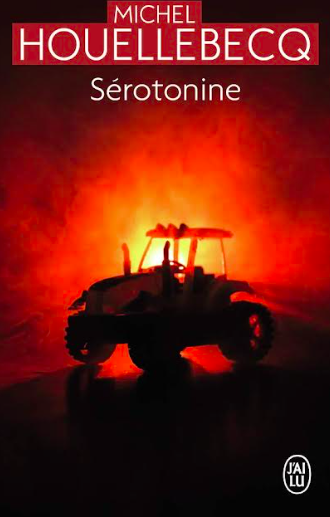Michel Houellebecq — The Bad Boy of French Literature
I love Michel Houellebecq’s books.
And I hate Michel Houellebecq’s books.
But love them or hate them, I can’t stop reading them.
Who is Michel Houellebecq? And should you read his books?
Michel Houellebecq – who is he?

Houellebecq has been called France’s greatest living writer, a worthy successor to the likes of Camus and Céline.
He has also been called an enfant terrible and a provocateur.
His books have sold millions, been translated into dozens of languages, and won many awards.
Houellebecq was born on the island of Réunion in 1956 but was soon abandoned by his parents. He lived for several years with his maternal grandparents in Algeria, then with his paternal grandmother in France. He studied to be an agricultural engineer, working in that field while writing books and articles on the side.
Houellebecq burst onto the literary stage in 1998 with his controversial Les Particules élémentaire (The Elementary Particles), a novel filled with brutal social commentary and pornographic sex.
He won his first major literary award for his 2005 novel La Possibilité d’une île (The Possibility of an Island), which described a dystopian future for the human race.
Then, in 2010, Houellebecq took home France’s top literary prize—the Prix Goncourt—for La Carte et le Territoire (The Map and the Territory), about an accidental art-world star.

What Are Houellebecq’s Books Like?
Houellebecq’s books are not cheerful, uplifting tales. Their protagonists are typically misanthropes, lonely middle-aged men who are buffeted by economic forces outside their control. This is what makes Houellebecq unique among contemporary French writers, his depiction of the cultural alienation caused by globalization. For him, capitalism is a malevolent force that creates winners and losers not only economically, but also in people’s love lives. There is no other writer like him, focused on the harsh consequences of economic malaise.

Houellebecq can also be prescient. His 2001 book Platforme (Platform) describes a terrorist attack on an island tourist site, anticipating an eerily similar attack in Bali a year later. And 2019’s Sérotonine (Serotonin), about desperate farmers who stage a revolt because of economic hardship was published at the same time that the Yellow Vest movement began to convulse France.
Stylistically, Houellebecq’s books are straightforward, lacking the flourishes of many French authors which may explain why they are more popular with the public than with French literary critics. It is also the reason they are easy to read in French.
Why Do I Hate Houellebecq?
His books are too often pornographic. His (always male) protagonists think about sex a lot, sometimes have sex a lot, and the sex is tawdry and depressing. While I understand that these men are the victims of capitalism, the embittered losers of French society, it does not make for pleasant reading. That’s why I don’t recommend Les Particules élémentaire, in particular.
Houellebecq’s books can also be too long, suffering from lots of repetition. La Possibilité d’une île and Anéantir (Annihilate), for example, are lovely in parts but would have been better at half the length.
Why Do I Love Houellebecq?
When he’s good, he’s really good.
Soumission (Submission), for example, delivers a thoughtful, insightful, and somewhat cynical exploration of how individuals and political parties can compromise principles in order to gain power.

And I love La Carte et le Territoire!
While nominally the story about the contemporary art scene, it is really a deeply felt story about relationships—between fathers and sons, between women and men, between long-time work colleagues. It avoids Houellebecq’s usual obsession with sex and is the reason I keep reading his books, hoping to find another one this good.
Should You Read Houellebecq?
Everyone’s taste is different. Houellebecq’s books have a strong male point of view, which may interest some readers more than others. And their generally downbeat nature means that I wouldn’t recommend a steady diet of them. But for a deeply insightful view into contemporary French life, especially among the losers of the globalization sweepstakes, Houellebecq’s books are hard to beat.
Have you read any of Micheal Houellebecq’s books? Do you have an opinion you’d like to share with other readers?
Image Credits
Michel Houellebecq: Wikipedia, GNU License, attribution Mariusz Kubik
La Carte et le Territoire: Amazon.fr
Sérotonine: Amazon.fr
La Possibilité d’une île: Amazon.fr







Thank you. Loved your analysis and viewpoint. Pretty much the same as mine!